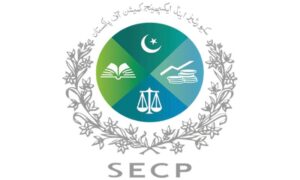A non-profit organization (NPO) is an entity that operates to serve the public interest, rather than for-profit. NPOs in Pakistan are registered under the Societies Registration Act, 1860, or the Companies Act, 2017, and are granted tax-exempt status by the Federal Board of Revenue. In this article, we will discuss the benefits of registering as a non-profit organization in Pakistan.
Tax Exemption
One of the primary benefits of registering as an NPO in Pakistan is tax exemption. Non-profit organizations are exempted from paying income tax, sales tax, and customs duty on imported goods. This allows NPOs to allocate their financial resources towards their primary mission and objectives, rather than being burdened with the payment of taxes. Tax exemption also encourages individuals and corporations to donate to NPOs, as their donations are tax-deductible.
For example, The Citizen Foundation (TCF), a non-profit organization that provides quality education to underprivileged children in Pakistan, is exempt from paying taxes. This allows TCF to allocate more resources towards their mission of providing quality education to children who cannot afford it.
Access to Grants and Donations
Non-profit organizations in Pakistan have access to a wide range of grants and donations from individuals, corporations, and international aid agencies. These grants and donations help NPOs to fund their projects and programs, and to expand their operations. Many of these grants and donations are only available to registered non-profit organizations, which highlights the importance of registering as an NPO.
For example, the Pakistan Poverty Alleviation Fund (PPAF) provides grants to non-profit organizations that work towards poverty alleviation in Pakistan. To be eligible for PPAF grants, organizations must be registered as non-profit organizations.
Credibility and Trust
Registering as a non-profit organization in Pakistan provides credibility and trust to the organization. Registration ensures that the NPO is operating within the legal framework and has met all the necessary regulatory requirements. This enhances the credibility of the organization in the eyes of donors, beneficiaries, and the general public, which is crucial for the success of any non-profit organization.
For example, the Shaukat Khanum Memorial Cancer Hospital and Research Centre, a non-profit organization that provides cancer treatment to patients in Pakistan, is a registered non-profit organization. This registration provides credibility and trust to the organization, which is crucial for its success.
Perpetual Succession
Non-profit organizations in Pakistan enjoy perpetual succession, which means that the organization can continue to exist even if the original founders or members are no longer active. This ensures the sustainability of the organization and its projects and programs, which is crucial for the long-term success of any non-profit organization.
For example, the Edhi Foundation, a non-profit organization that provides social services in Pakistan, was founded by Abdul Sattar Edhi in 1951. Despite his death in 2016, the Edhi Foundation continues to operate and provide social services to the people of Pakistan.
Limited Liability
Non-profit organizations in Pakistan have limited liability, which means that the liability of the members or directors is limited to the amount of their contribution to the organization. This protects the personal assets of the members or directors, and encourages more individuals to become involved in non-profit organizations.
For example, if a non-profit organization in Pakistan is sued for damages, the liability of the members or directors is limited to the amount of their contribution to the organization. This means that their personal assets are protected and cannot be seized to pay for the damages.
Access to Government Funding
Non-profit organizations in Pakistan have access to government funding for their projects and programs. The government of Pakistan provides funding to non-profit organizations that work towards social welfare and development, which helps NPOs to expand their operations and reach a wider audience. This funding is only available to registered non-profit organizations, which highlights the importance of registration.
For example, the Benazir Income Support Programme (BISP) is a government-funded program that provides financial assistance to the poorest of the poor in Pakistan. BISP provides funding to registered non-profit organizations that work towards poverty alleviation in Pakistan.
Greater Flexibility
Non-profit organizations in Pakistan have greater flexibility in terms of their operations and management. NPOs are not bound by the profit motive and can focus on their primary mission and objectives. This allows NPOs to make decisions that are in the best interests of their beneficiaries, without the pressure of generating profits.
For example, a non-profit organization that provides healthcare services to underserved communities in Pakistan can focus on providing quality healthcare services, without the pressure of generating profits.
Better Networking Opportunities
Non-profit organizations in Pakistan have better networking opportunities with other organizations, both within Pakistan and internationally. Networking allows NPOs to collaborate with other organizations, share resources and knowledge, and expand their reach and impact.
For example, a non-profit organization that works towards environmental conservation in Pakistan can collaborate with other organizations that work towards the same cause, share resources and knowledge, and expand their impact.
Access to Skilled Volunteers
Non-profit organizations in Pakistan have access to skilled volunteers who are willing to donate their time and expertise to the organization. Skilled volunteers can provide valuable support to NPOs, and can help the organization to achieve its mission and objectives.
For example, a non-profit organization that provides education to underprivileged children in Pakistan can benefit from skilled volunteers who can provide teaching support, IT support, and administrative support.
Positive Impact on Society
Non-profit organizations in Pakistan have a positive impact on society by addressing social, economic, and environmental issues. NPOs work towards the betterment of society and aim to make a positive impact on the lives of their beneficiaries. This is a key benefit of registering as a non-profit organization in Pakistan.
For example, the Akhuwat Foundation, a non-profit organization that provides interest-free microfinance to the poor in Pakistan, has helped thousands of people to start their own businesses and improve their economic conditions.
In conclusion, registering as a non-profit organization in Pakistan has numerous benefits, including tax exemption, access to grants and donations, credibility and trust, perpetual succession, limited liability, access to government funding, greater flexibility, better networking opportunities, access to skilled volunteers, and a positive impact on society. These benefits make registering as an NPO a viable option for individuals who want to make a positive impact on society and work towards the betterment of their community.



